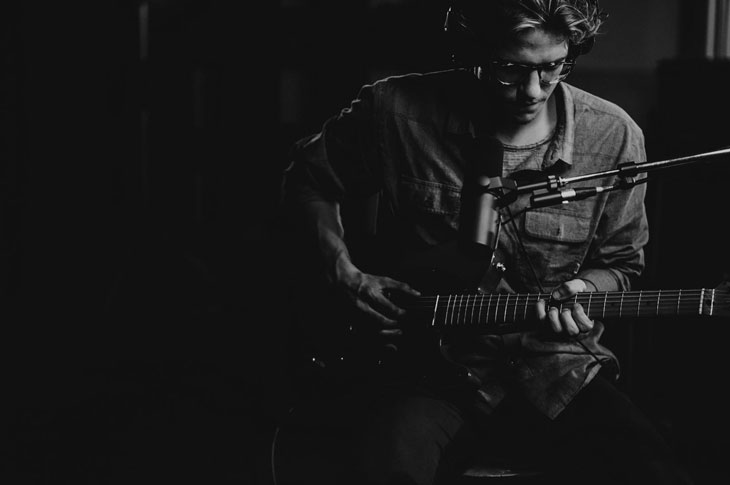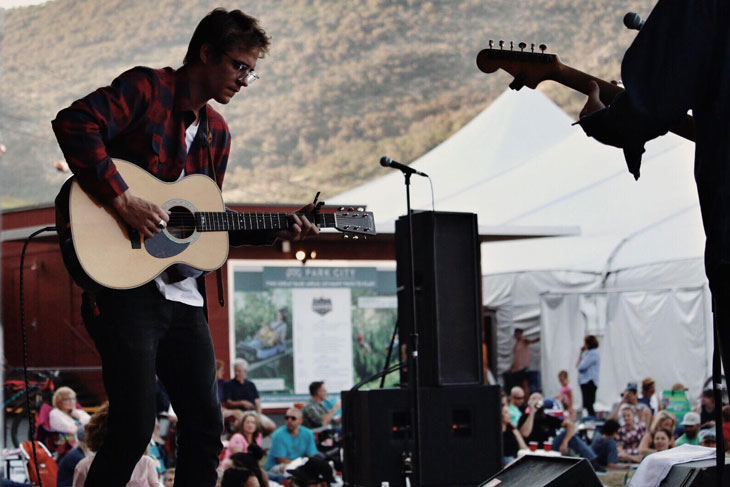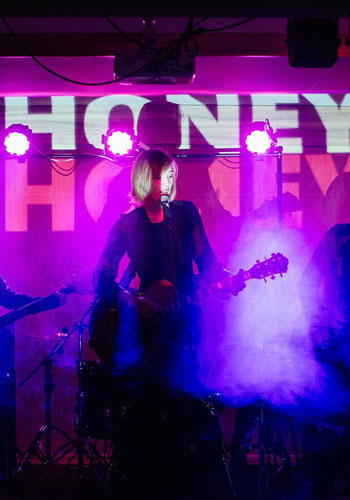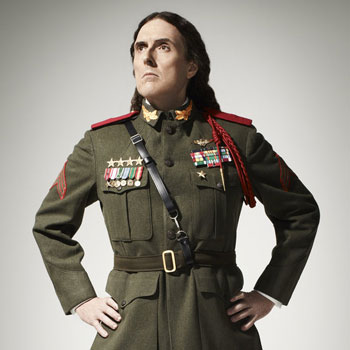Twenty-two year-old Corey Harper, a singer-songwriter from St. Louis, Missouri, ticks all the boxes of stardom. He's young, talented and handsome, with a shock of blonde hair Jerry Lee Lewis would be proud of, and his debut EP, On the Run, featuring the sun-kissed, anthemic “Califronia Sun”, is racking up praise from Rolling Stone to Teen Vogue. All the attention has earned him a lucrative spot supporting Justin Bieber on tour, a blessing and a curse.
Bieber belongs to a whole swathe of mainstream artists, whose carefully managed cute and safe personas of their teen years left them with nowhere to go. Outgrown by their original fans and under pressure by a host of younger sound-a-likes banging on the door, it's little wonder they are tearing themselves apart, desperate to be taken in earnest but seeming ever more irrelevant and self-indulgent. Few, like Kylie Minogue, ever seem to escape this vicious cycle.
What saves Harper from being sucked into this black hole of “teen idols” is that he is articulate, willing to take musical risks, authentic and wise enough to be wary of the trappings of fame. “I don’t see myself as an idol, because that’s just ridiculous,” he reflects, “but I do have idols myself and I know what that feels like. I think it’s extremely important to be aware of my influence on the people who might look up to me.”
Harper also rose into the music business the old fashioned way: getting a diet of guitar, hard work, and blues and country classics from his father and uncle. “It was easy for me to imagine the music I would play,” he says, “because I loved the blues so much, but I didn’t have the tools or skill. So I practiced a lot by myself.” He is far too polite and respectful to ever point this out, but Harper's music is a good mile away from the synth-pop and vocal histrionics of Justin Bieber and his clones.
I think it’s worse to be someone who is afraid to be vulnerable and spends their life trying to be perfect. Life is too short for that. We’re all going out the same way.
On the Run proudly wears its influences on its sleeve, with a robust, full sound which owes as much to rock as it does to country. It's no surprise that Harper points to Jackson Browne, Creedence Clearwater Revival, and Derek and the Dominoes as three bands that stood out in his childhood. Breakthrough track “California Sun” may be a well-worn tale of young heartbreak, but it carries an earnestness and lack of self-pity entirely at odds with the current trend: You've got your reasons for getting up and leaving / but I've got one or two for you to stay / I'm not going anywhere fast / 'Cause you always come right back.
At times Harper's writing is confessional and raw enough to bare comparison to Johnny Cash. Take “Keeping Me Alive”, in which Harper laments: And tell Jesus I said hi / Been a while since I read his book / Deep down I know I should / most nights I'm way too drunk to try.” For further evidence, listen to “Same Drugs”, which showcases Harper's bluesy guitar work and Chance he Rapper's lyrics like, We don't do the same drugs anymore / when did you change?”
This old-school approach goes for recording, too. “When it comes to recording, we’ll track all together in the studio. It’s a language I’m most comfortable with and makes more sense for me than just using software instruments like most popular music has in it now,” he explains. “It doesn’t mean I dislike the music that embodies that method, it’s just a different language for me.” His admiration for the old ways, though, doesn’t cloud his respect for contemporaries, though. “A majority of the bands and artists I listen to are still making real and genuine recorded music.”
This approach extends to Harper's live performances, again far removed from the minutely choreographed shows of many of his peers. “Performing live allows you to take more creative risks. You’re thinking on your feet most of the time, and always on the edge of finding something new in your set.” It also allows Harper to make a special connection with the audience, impossible in the studio. “Playing live gives you the ability to reach into the audience with a firm grasp on their attention,” he explains. “The reason it’s most common for people to become believers in someone’s music when they go to a live show is because they are seeing the artist come full circle.”
Although Harper did formally study music, he quit to pursue a more direct musical path, relocating to Winston House in Venice Beach, a decision that proved pivotal. Here, he wrote a host of songs and played his first “shows” to friends who would always show up to the house to hangout on the weekends. “I became introduced to the performing world by practicing all day and playing all night.”
The grittiness and honesty of this early experience as a working musician surely accounts for much. “There were times I would finish writing something a couple minutes before walking up to the microphone,” says Harper, “ It felt incredible to have immediate feedback. That’s when the obsession of song-writing became more intrinsic.” At the center of his song writing philosophy is space. “With the space I left in my songs, I could write more in every time I performed them, making the performances a canvas as well, and not just a stage.”
As for the music business itself, notorious for chewing up and spitting out young performers, Corey assures he’s encountered no pressure to be anything other than himself, even from managers. Whereas Bieber was discovered via singing covers on YouTube, Miley Cyrus and Lindsay Lohan through Disney, Harper has had the good fortune to develop at his own pace and proven method of practice. It today's rabid get-rich-quick society, there are fewer and fewer who are willing to put in the time or risk naked exposure.
That doesn’t mean Harper suffers no doubt; he does, every second of the day, but finds strength and confidence in the reactions of his fans. “The fact that people are listening and connecting to my songs all over the world amazes me every day. Whenever I feel like my music is not quite where I want it to be, and I will have room for the rest of my life to work and get better.”
This admirable approach will hopefully serve Harper well against the ever ravenous pop-idol machine, or it could consume him. But there’s nothing for it but stepping into the belly, guitar in hand, and songs on the fingertips. “I think it’s worse to be someone who is afraid to be vulnerable and spends their life trying to be perfect. Life is too short for that. We’re all going out the same way.”
Harper’s release, “Favourite Part of Loving You”, is another step in the right direction, making good use of his vocal gifts and underlining his maturity as a songwriter. It’s a stomping, hand-clapping affair with thumping drums, a subtly beguiling bassline and embellished with Harper’s pleasing guitar flourishes. Lines such as, places where we’d rather be/anywhere but there/and you always look better in the dress you never wear, show Harper possesses the talent to run the course, and with good fortune and strong will, can hopefully avoid the many traps along the way. Let’s hope he is writing and singing long after many of his contemporaries have disappeared.














